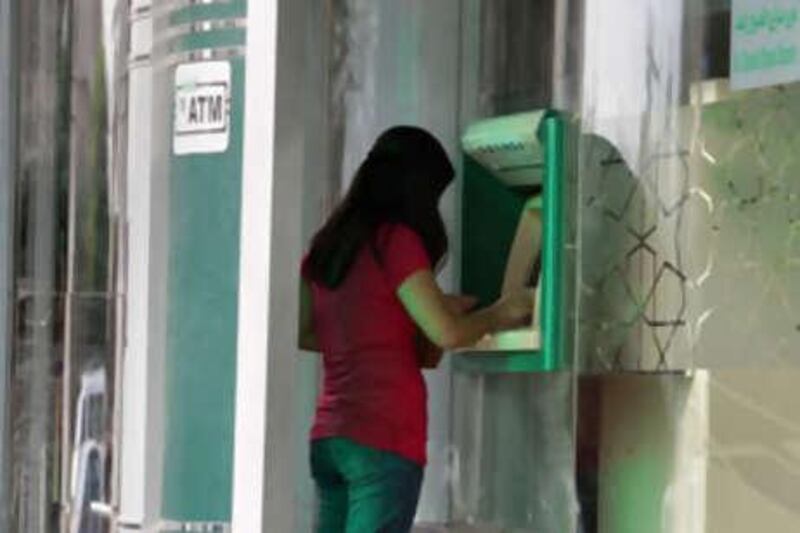Anyone who doubts whether the global credit crunch will have any repercussions in the UAE should take a look at the banking sector. The effect is already being felt: foreign banks have stopped lending, forcing banks to turn to other sources, such as either local depositors' or government funds. "Liquidity in this region is not available as it used to be months earlier," said Henry Azzam, the head of the Middle East for Deutsche Bank, in an interview with Zawya Dow Jones. This view was endorsed by Ajay Sehgal, the deputy group treasurer at Emirates NBD. "There's a systemic breakage in the money markets right now, foreign banks are not lending at the moment, everyone is looking at covering their own positions," he said. "It happened after Sunday."
Despite a slew of international bankers coming to the Gulf, it appears they may have little to do until their head offices decide on policy changes. Unless conditions ease, this could affect the region's ambitious plans to invest US$2.3 trillion (Dh8.5tn) on infrastructure and property development. "Liquidity is not ample as it was in the past. Lending conditions have changed," Philippe Aroyo, head of UAE banking at BNP Paribas told a newswire. "The cost of debt for lenders has increased, which is passed on to the borrowers at a higher price."
As access to finance dries up, financial institutions are looking towards the rapidly growing Islamic finance sector as a ray of hope, although they admit that the forecasts are gloomy for even the fastest growing sectors. So what can be done? According to Elias Bikhazi, the co-head of research at the National Bank of Kuwait, GCC governments can shore up liquidity and the financial system in a simple way. "Government accounts and sovereign wealth funds are awash in cash, thanks to oil revenues. They can simply be talked, by banking or government authorities, into placing some of this available cash with local institutions for known maturities, thereby providing liquidity locally and cushioning some of the uncertainties stemming from recurring financial shocks on the world scene."
The good news, as far as we can tell, is that banks in the Gulf have limited exposure to either the failed Lehman Brothers or the ailing institutions such as American International Group (AIG), the American insurance company that has been effectively nationalised by the US government. The National Bank of Abu Dhabi (NBAD) admitted yesterday to some exposure to a UAE subsidiary of AIG, but said it was not expecting that to have any adverse financial impact. "The bank has an exposure to a subsidiary of AIG in the UAE, fully secured by commercial property, which is currently fully let," the bank said. It added that the rental generated so far from letting the property had provided NBAD with 150 per cent cover of their exposure. NBAD said it had "no direct exposure to Lehman Brothers".
rwright@thenational.ae





